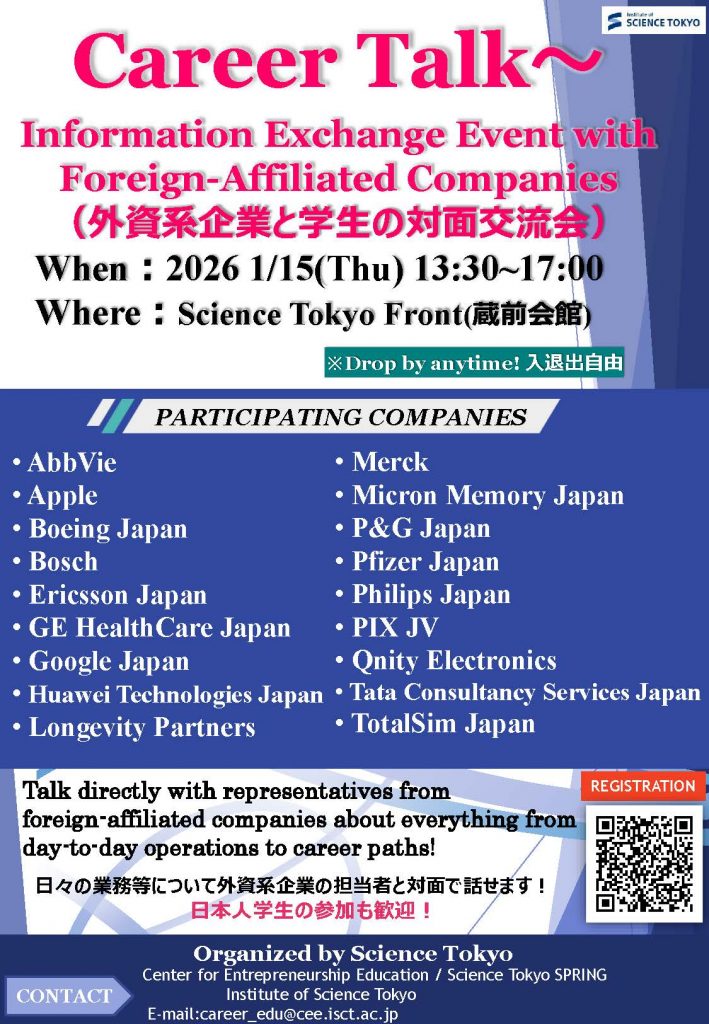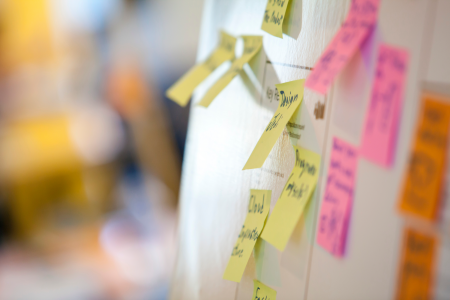Interview No.58 Srisinsuphya Panithan
環境・社会理工学院
Hello, my name is Panithan Srisinsuphya, from Thailand. I am interested in VR and AR technology. When I am not doing my research I usually spend my time reading, taking walks or doing whatever personal projects I am currently interested in at the moment. Currently I am working on a few DIY projects namely a body tracking device based on SlimeVR as well as a custom stream deck. I also really enjoy cooking and sometimes bake my own cookies or make pizza.

Research Outline
My research is about developing a RISC-V-based digital processing platform for intermittently-operated ultra-small IoT edge devices. When testing out sensors or implementing them in the field, each sensor usually requires multiple supporting circuits such as a power supply, the ability to process data, and a way to transmit that data. Through the use of a RISC-V-based CPU, I am working on creating a digital platform that serves as a base where different sensors can be easily implemented.
The RISC-V CPU allows for reprogramming, which in turn makes it possible to swap out sensors or change how the data is processed before being transmitted. This flexibility makes the platform adaptable to different use cases without needing to redesign everything from scratch.
In addition, the platform is designed for intermittent operation. This means the device goes through a cycle of powering up, processing data, and then shutting down to recharge. Because of this operation mode, the system can consume much less energy and doesn’t require batteries. Instead, it recharges a capacitor using optical power, making it suitable for long-term deployments in environments where regular battery replacement is difficult.During the weekdays, I keep my meals relatively simple and mostly eat what I cook. While cooking does take time, many people try to solve this by preparing a week’s worth of meals in advance. That works, but it usually means eating the same food every day and it’s often not as delicious as it could be. So instead, I focus on two things:
In today’s world, things can feel extremely unpredictable with geopolitical conflicts flaring up and the cost of living continuing to rise. As researchers, and as people in general, it’s easy to lose track of our well-being. We tell ourselves, “It’s too expensive,” and settle for cheap and easy meals like instant noodles or a bento from a convenience store. But good food doesn’t have to be expensive. And neglecting your health can start a downward spiral that makes it harder to do the things you actually want to do, including your research.During the weekdays, I keep my meals relatively simple and mostly eat what I cook. While cooking does take time, many people try to solve this by preparing a week’s worth of meals in advance. That works, but it usually means eating the same food every day and it’s often not as delicious as it could be. So instead, I focus on two things:
- Preparing the ingredients beforehand
- Cooking rice the night before

What do I mean by preparing ingredients? Usually on Saturday or Sunday, I spend some time chopping everything I’ll need for the week and storing them in separate containers. For example, I’ll have plastic tubs with chopped onions (sliced or diced), carrots, and cabbage. While I do use other vegetables occasionally, these three are my main go-tos. Having everything prepped like this means that I can grab what I need as I cook, which turns a 30-40 minute meal prep into a quick 5-10 minute session.
With different sauces, meats, and spices on hand, you can mix and match depending on your mood whether it’s stir-fry, stew, or something else. In the case of stews, you can even leave them simmering on low heat while taking a quick morning shower. As for rice, it usually takes 30-40 minutes to cook, so I wash it and press the cook button right before going to bed. Personally, I save about 50-60% compared to eating out just by cooking my own meals.
Another thing I admittedly slacked on for a while is exercise. As researchers, we often spend most of the day inside the lab, and how much physical activity we get really depends on the individual. Over time, I started to notice a slow decline in my ability to focus and in how long I could work before needing a break. To get back on track, I started by keeping things simple, just going for short walks whenever I reach a dead end. Even a few minutes made a noticeable difference in how clear my head felt afterward.
Eventually, I got my hands on some VR gear which allowed me to add some VR workouts like Beat Saber and Punch Fit, which helped make exercise feel more like a game than a chore, it also helps that it doesn’t need a lot of space to be able to do so. For those without the gear there are always exercises that you can follow along online although it might take some digging to find the right one for you. I also try to mix in a bit of weight training a few times a week, but nothing too intense.

Message
To other students and applicants, I don’t have much advice, but I’d say this: don’t forget to take care of your health, and try not to lose the curiosity you had as a child. You never know, the answer to a problem you or someone else is facing might be waiting on the other side of that curiosity.




